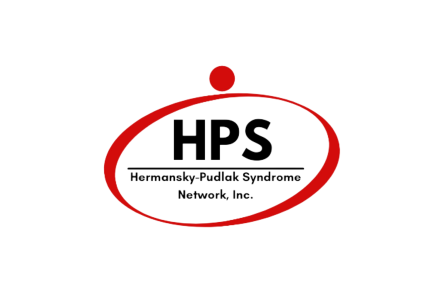Hermansky-Pudlak Syndrome Network
Cycle 1
Hermansky-Pudlak Syndrome (HPS) is a genetic metabolic disorder, characterized by albinism, visual impairment, and a platelet dysfunction that results in prolonged bleeding.
Last updated May 2024
Clinical
Disease Class
Rare developmental anomalies during embryogenesis
Rare gastroenterological diseases
Rare genetic diseases
Rare hematological diseases
Rare inborn errors of metabolism
Rare ophthalmic diseases
Rare respiratory diseases
Rare skin diseases
Rare transplant-related diseases
Body Systems
Cardiovascular / Circulatory
Digestive
Endocrine
Hematopoietic / Lymphatic / Immune
Integumentary / Exocrine
Metabolic
Nervous / Sensory
Renal / Urinary / Excretory
Respiratory
Organs
Blood
Eyes
Intestines
Kidneys
Lungs
Skin
Stomach
Genes
AP3B1
AP3D1
BLOC1S3
DTNBP1
HPS1
HPS11 (BLOC1S5)
HPS3
HPS4
HPS5
HPS6
PLDN
Type of Inheritance
Autosomal recessive
Disease Mechanism(s)
Inborn errors of metabolism
Lysosomal defects
Pathogenic mutation
Age of Onset
Prebirth
Incidence
11-50
Prevalence
1001-10000
Populations and/or ancestry with higher prevalence
We have a Founder's Effect in Puerto Rico.
Symptoms / Phenotypes
breathing difficulties
bruising susceptibility
cramps
diarrhea
gastrointestinal disorders
hemorrhage/bleeding
inflammatory bowel disease (IBD)
kidney disease / nephropathy
menorrhagia
nose bleed / epistaxis
oral sore / ulcer
Prolonged bleeding following procedure
pulmonary fibrosis
vision problems
vitiligo
Biomarkers
Diagnostic
· Lack of Dense granules on Platelets
Monitoring
· PFT's to monitor FVC and Diffusion Capacity
Prognostic
· FVC and Diffusion Capacity; HPS 1,2 and 4 - 100% develop fatal pulmonary fibrosis
Existing Therapies
Alternative treatments (eg. nutritional supplements)
· Oxygen
Drugs used off-label
· Remicade for Colitis; Inhalers, Pirfenidone for lung disease; DDAVP, Lysteda, Amicar for Bleeding disorder
Organizational & Research
Cell Lines
Fibroblasts
iPSCs
Organoids
Type 2 pneumocytes
Cell Lines, location
Boston University
NIH
Cell Lines, share
Unknown
Disease Model
Mouse
Zebrafish
Disease Model, location
Children’s Hospital of Philadelphia (CHOP)
Columbia University
NIH
NIH National Human Genomes Research Institute (NHGRI)
Disease Model, share
Yes
Clinical Trial Role
Data sharing
Focus group
Funding
Meeting with regulators
Recruitment and outreach, patients
Results dissemination, publication
Study protocol design, review
Travel coordination
Biobank
None
Center of Excellence
NIH
Registry
Yes, we have a registry that we created
Data Collected, Registry
Medication usage
Patient contact info
Data Entered by, Registry
Both
Platform, Registry
IAMRARE
Natural History Study
Yes, we have collaborated on a natural history study
Data Collected, Natural History Study
Genetic data
Imaging data
Medication usage
Prospective data
Retrospective data
Platform, Natural History Study
IAMRARE
FDA Patient Listening Session
No
FDA Patient-Focused Drug Development (PFDD) Program
Yes
ICD Codes
Yes, we have an ICD-10 code specific to our exact disease
Diagnostic Guidelines
Yes
Clinical/Treatment Guidelines
No
Organizational Roles
Executive Director
Science Advisory Board Policies
Yes, not willing to share SAB policies
Research Network Policies
Has CRN but no policies
Research Roadmap
Yes we have a Research Roadmap, and will share policies
International Chapters
None
International Partners
None
